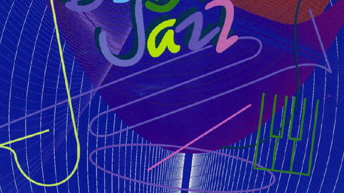WELCOME TO WIKI JAZZ!
Jazz is a form of music that has made the critical and cultural evolution from disrespected wild music to one of the major forms of "serious" music. The origins of jazz, which is considered by most as "America's classical music," are found in the burgeoning city of New Orleans at the turn of the 20th century. Taking cues from a number of different existing genres including but not limited to blues, ragtime, classical and marching bands, the jazz style of music began like most genres do, experimental and rebellious (usually condemned by popular culture). Later of course the music would be held in the highest esteem before inevitably breaking down into a number of sub-genres. It is impossible to trace the lineage of jazz in a straight line; from the outset it branches out into any number of paths. As stated before, the starting point geographically was New Orleans (some speculate in the Red Light District of the city) where the style was mostly embraced by African-Americans looking to express themselves. The style was quickly adopted by the mostly black lower class and simultaneously discredited by the mostly white upper class. Thanks to the great migration of African-Americans during that era, jazz spread across the country finding fertile homes in Chicago, New York and a few other major cities; where it was able to evolve in different directions with each major location finding its own niche. Luminaries in the genre during the 30s and 40s such as Louis Armstrong, Benny Goodman and Count Basie along with the big band and swing styles helped immensly to popularize jazz and establish it as a major musical powerhouse. And in turn, the popularization inspired a lot of musicians to rebel against the mainstream tastes and create new styles which included everything from the initial reaction of hard bop embraced by Art Blakey and Miles Davis to the anarchic free jazz practiced by Ornette Coleman and John Coltrane to other various approaches such as latin jazz, cool jazz and fusion.
